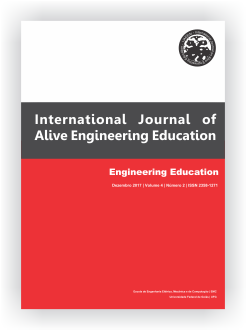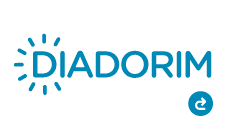David Ausubel’s theory and learning improvement: a case study of the Leveling Courses Program in Basic Sciences for Engineering
DOI:
https://doi.org/10.5216/ijaeedu.v4i2.48273Keywords:
Meaningful Learning, David Ausubel, Engineering, Evasion, SubsumersAbstract
The evasion in higher education, especially in science courses, is a reality faced by universities not only in Brazil, but also in several other countries around the world. The number of students who drop out of university is very expressive, resulting in academic, economic and social losses. To try to minimize this problem, the University Extension Department of the Federal University of Pará (UFPA) together with the Institute of Technology (ITEC) created in 2011 the Levelling Courses Program in Basic Sciences for Engineering (LCPBSE), whose main area of action is to teach basic mathematics, physics and chemistry for the newly enrolled students in engineering courses. These classes happen before the students have contact with the first subjects of the basic cycle, especially the discipline of Calculus 1, common to all engineering courses. Recent statistical studies have demonstrated that LCPBSE has a relevant role to reduce educational gaps in conceptual and operational fields in the basic sciences to engineering, in addition to working essential topics to the basic courses of undergraduate. Recognizing the importance of LCPBSE as fundamental tool against evasion rate, the research is aiming to better understand its functionality and how it was able to increase the approval ratings. Thus, this paper has as objective to explain how the LCPBSE supports students and it tries to understand what epistemological learning mechanism under the factors contributing to students academic performance increasing. The methodology was based on the bibliographical research of several authors who study the cognitive learning. Among them, we studied those who had a philosophical cognitive/constructivist stance: Piaget, Vygotsky, Kelly, Ausubel and Vergnaud. As a result of this studies, we focus on David Ausubel’s work, who proposes the Meaningful Learning Theory, a thesis that may be able to explain how LCPBSE is helping students to learn more efficiently. According to Ausubel, for learning to be meaningful, it is necessary for the new information to relate to a relevant aspect already existing in the learner's cognitive structure. These relevant aspects are called subsumers, which serve as an anchor for the new knowledge to be acquired. Based on this, the LCPBSE classes may be serving as an organizer of the students' subsumers, so that they can attend the Calculus classes already with the necessary prior knowledge. Finally, we concluded that the organization of subsumers can be a critical strategy used to improve learning and to decrease the evasion rates. Such strategy can be applied not only in the LCPBSE, but also in other programs of other universities.
References
SILVA FILHO, Roberto Leal Lobo, et al. A evasão no ensino superior brasileiro. Cadernos de pesquisa, v. 37, n. 132, p. 641-659, 2007.
APARECIDA, CRISTIANE; BAGGI, SANTOS; LOPES, DORACI ALVES. Evasão e avaliação institucional no ensino superior: uma discussão bibliográfica. 2011.
DA SILVA, Glauco Peres. Análise de evasão no ensino superior: uma proposta de diagnóstico de seus determinantes. Avaliação: Revista da Avaliação da Educação Superior, v. 18, n. 2, 2013.
LOBO, M. B. C. M. Panorama da evasão no ensino superior brasileiro: aspectos gerais das causas e soluções. Associação Brasileira de Mantenedoras de Ensino Superior. Cadernos, n. 25, 2012.
RODRIGUES, Maria Ester. Behaviorismo: mitos, discordâncias, conceitos e preconceitos. Educere et Educare, v. 1, n. 2, p. 141-164, 2007.
SANTOS, José Alex Soares. Teorias da Aprendizagem: comportamentalista, cognitivista e humanista. Revista Cientifica Sigma, v. 2, n. 2, p. 97-111, 2006.
OJOSE, Bobby. Applying Piaget's theory of cognitive development to mathematics instruction. The Mathematics Educator, v. 18, n. 1, 2008.
POWELL, Katherine C.; KALINA, Cody J. Cognitive and social constructivism: Developing tools for an effective classroom. Education, v. 130, n. 2, p. 241-251, 2009.
KELLY, George A. Personal construct theory and the psychotherapeutic interview. Cognitive Therapy and Research, v. 1, n. 4, p. 355-362, 1977.
VERGNAUD, Gérard. The theory of conceptual fields. Human development, v. 52, n. 2, p. 83, 2009.
TAVARES, Romero. Aprendizagem significativa e o ensino de ciências. Ciências&cognição, v. 13, n. 1, 2008.
MOREIRA, Marco Antonio. Aprendizagem significativa: a teoria e textos complementares. São Paulo: Editora Livraria da Física, 2011.
AUSUBEL, David P. A subsumption theory of meaningful verbal learning and retention. The Journal of General Psychology, v. 66, n. 2, p. 213-224, 1962.
MOREIRA, Marco Antonio. APRENDIZAGEM SIGNIFICATIVA: da visão clássica à visão crítica (Meaningful learning: from the classical to the critical view). In: Conferência de encerramento do V Encontro Internacional sobre Aprendizagem Significativa, Madrid, Espanha, setembro de. 2006.
MOREIRA, Marco Antonio. Linguagem e aprendizagem significativa. In: Conferência de encerramento do IV Encontro Internacional sobre Aprendizagem Significativa, Maragogi, AL, Brasil. 2003.
VASCONCELOS, Clara; PRAIA, João Félix; ALMEIDA, Leandro S. Teorias de aprendizagem e o ensino/aprendizagem das ciências: da instrução à aprendizagem. Psicologia Escolar e Educacional, v. 7, n. 1, p. 11-19, 2003.
MOREIRA, Marco Antonio. Aprendizagem significativa, organizadores prévios, mapas conceituais, diagramas V e unidades de ensino potencialmente significativas. Pontifícia Univerdidade Católica do Paraná, 2013.
GOMES, Andréia Patrícia et al. A educação médica entre mapas e âncoras: a aprendizagem significativa de David Ausubel, em busca da arca perdida. Rev bras educ méd, v. 32, n. 1, p. 105-111, 2008.
NOVAK, Joseph D. Meaningful learning: The essential factor for conceptual change in limited or inappropriate propositional hierarchies leading to empowerment of learners. Science education, v. 86, n. 4, p. 548-571, 2002.
Downloads
Published
Issue
Section
License
Copyright
The author is responsible for the following statements by submitting an article electronically in the International Journal of Alive Engineering Education (IJAEEdu):
a) States that the document in question was reviewed by an expert in English language and it is an original work and it holds the prerogative to grant the rights contained in this license. It also states that the document does not infringe, as far as it is possible to know the rights of any other person or entity.
b) If the document in question contains material which does not hold the copyright, the author states have obtained the copyright holder’s permission to grant the Universidade Federal de Goiás (UFG) the rights required by this license, and that such material whose rights are third is clearly identified and acknowledged within the text or content of the document.
c) States that the study was conducted in accordance with the ethical standards of all applicable institutional, local, national and international guidelines.
d) It also states that any person appointed as author or co-author of the document is aware of it and agrees to be so appointed.
Authorization Form
As responsible for the submission of the document, I authorize the School of Electrical, Mechanical and Computer Engineering of the Federal University of Goiás to provide the paper free of charge, through the Electronic System for Publishing Magazines UFG (SEER / UFG) or in printed form, without compensation of copyright, in accordance with Law No. 9610/98. Is allowed, reading, printing and / or download, as a promotion of the Brazilian scientific production. Any use of the work not authorized under this license or the copyright law is prohibited.



